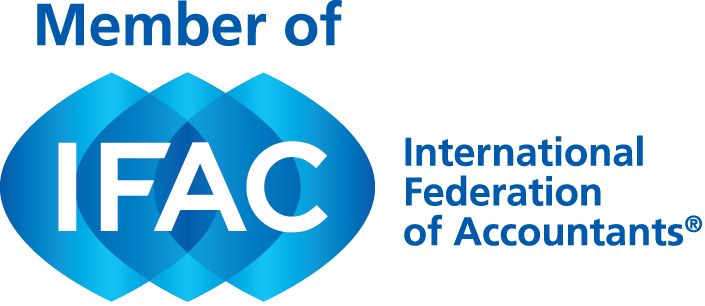|
Cayman Islands accountants
uniquely placed to be global ESG leaders
Accountants worldwide, including Cayman-based accounting professionals, are uniquely positioned to support ESG standards, frameworks and reporting.
Accountants already play a crucial role in helping businesses, governments and investors consider more sustainable and socially responsible decisions, particularly as there is increasing awareness about and regulation in the ESG space.
“I think it’s an exciting time for the accountancy profession… where they will actually make a significant impact for investors,” said Richard Harrison, consultant Director of ESG & Management Company Services at Clearwater and a member of the Cayman Islands Institute of Professional Accountants ESG Committee.

Harrison says the creation of the International Sustainability Standards Board (ISSB) following COP26 signals a “huge moment” for both sustainability reporting and for the accountancy profession in a couple of ways, as does the SEC’s recently published proposed climate disclosure standards.
The ISSB was launched by the IFRS Foundation, a public-interest organization established to develop a single-set of quality, understandable, enforceable and globally accepted accounting standards.
This respected not-for-profit that for years has laid the path for how accountants prepare financial statements is also developing a set of sustainability disclosure standards through the ISSB that comprise several previously established sets of standards and frameworks. CIIPA -- through input from its ESG Committee and Public Practice Committee -- recently provided feedback on a pair of ISSB sustainability proposals.
"We see firsthand the impact of climate change on our sea levels, in particular.
We have a personal investment."
“This fundamental base layer brings the accountants into the same room as it were with groups who, for instance, have been championing and advancing climate change reporting like the Climate Disclosure Standards Board (CDSB),” Harrison said.
Reporting is only part of the equation
Accountants and auditors have long helped entities become more efficient through reliable and transparent financial information, which, in turn, can help companies better manage resources, attract investment or access credit by helping influence decision making. With respect to ESG, accountants are in a position to analyse entities’ operations, break down information silos and inform decision makers on how their decisions impact environmental and social sustainability. High quality assurance services also enhance credibility and trust.
“You can't manage what you don't measure, and measuring is what accountants

Scott pointed to the SEC’s recent climate disclosure proposal as an example, as it would require information quantifying -- in dollar value -- the impact of transition risk and physical risk for every line item in the financial statements.
“That sort of information is critical to decision makers,” Scott said. “Seeing is believing, 100 percent. …If [decision makers] see that the negative impact of physical risks on operations is ‘X million’ dollars, [they’re] much more motivated to change it. Accountants… play a key role in not only making sense of the information, but also sharing it with [those responsible for taking action].”
In a 2021 report from KPMG that surveyed 90 endowments, pension plans, long-only asset managers and alternative asset managers across 20 jurisdictions with a combined US $34.5 trillion of assets under management, 74% of respondents said their organisations were either at the stage of “already mature” or in the “implementation phase” of pricing climate risk in active funds and 78% in passive funds. Seventy-two percent expected capital markets to start factoring in climate risk on a notable scale over the next three years.
“There's a lot of interest from investors,” Scott said. “Investors increasingly want to know how their portfolios are factoring in ESG and responding accordingly to ESG-related risks. Investors are the wall of money, driving products to asset managers and forcing managers to be more responsible and accountable. In doing so, they’re indirectly ensuring that the capital markets are becoming a force for good. It’s a powerful and exciting movement.”
Uniquely placed
Cayman-based accountants, in particular, may be better placed than their global counterparts to spark progress in this space.
Cayman is a global leader in international banking and finance, boasting a robust financial services industry and professional infrastructure. Approximately 80 percent of the world’s hedge funds are domiciled locally.
There’s a significant amount of capital and assets under management in the Cayman Islands that will be allocated in sustainable or socially responsible investment vehicles. This means Cayman-based funds, investment managers and corporations have the power to create change.
There aren’t many jurisdictions that combine a booming financial services industry along with many of the world’s leading accounting firms right in their backyard. When you consider the large percentage of the local population working in the industry and the fact that firms in Cayman work with clients across the world, it’s easy to see how accountants here are in a unique position to make a difference.
"Being based in an international financial center means that we work with jurisdictions globally and are at the forefront of innovation,” Scott said. “I've had clients in every corner of the world…. We have to have a real appreciation for the different regulatory and accounting standards and what's happening globally.
“It's also that it's very personal to us. We live on an island; this is our home. We see firsthand the impact of climate change on our sea levels in particular. We have a personal investment.”
For more information on ESG, visit the Cayman Islands Institute of Professional Accountants ESG Resources page here.


